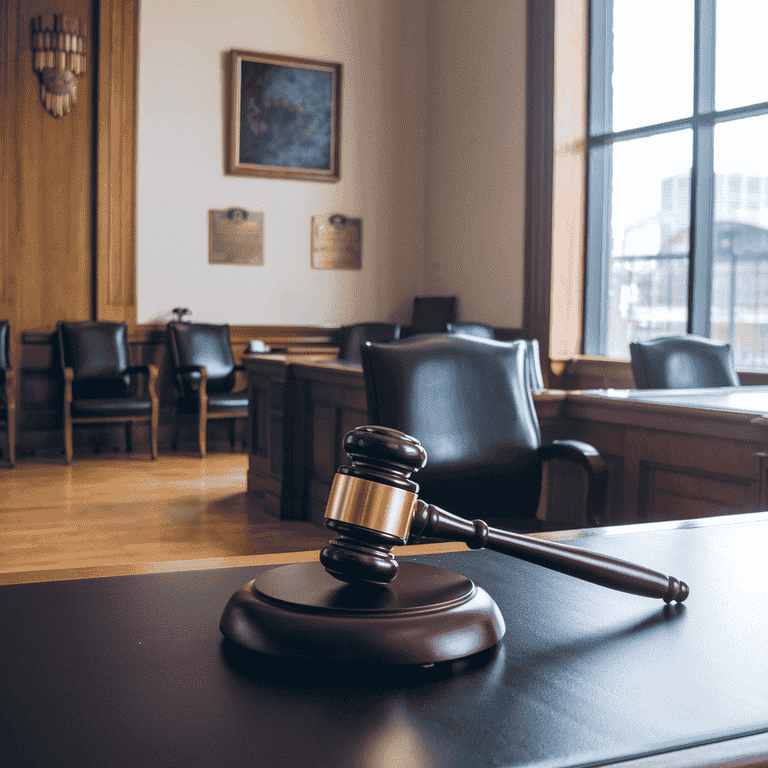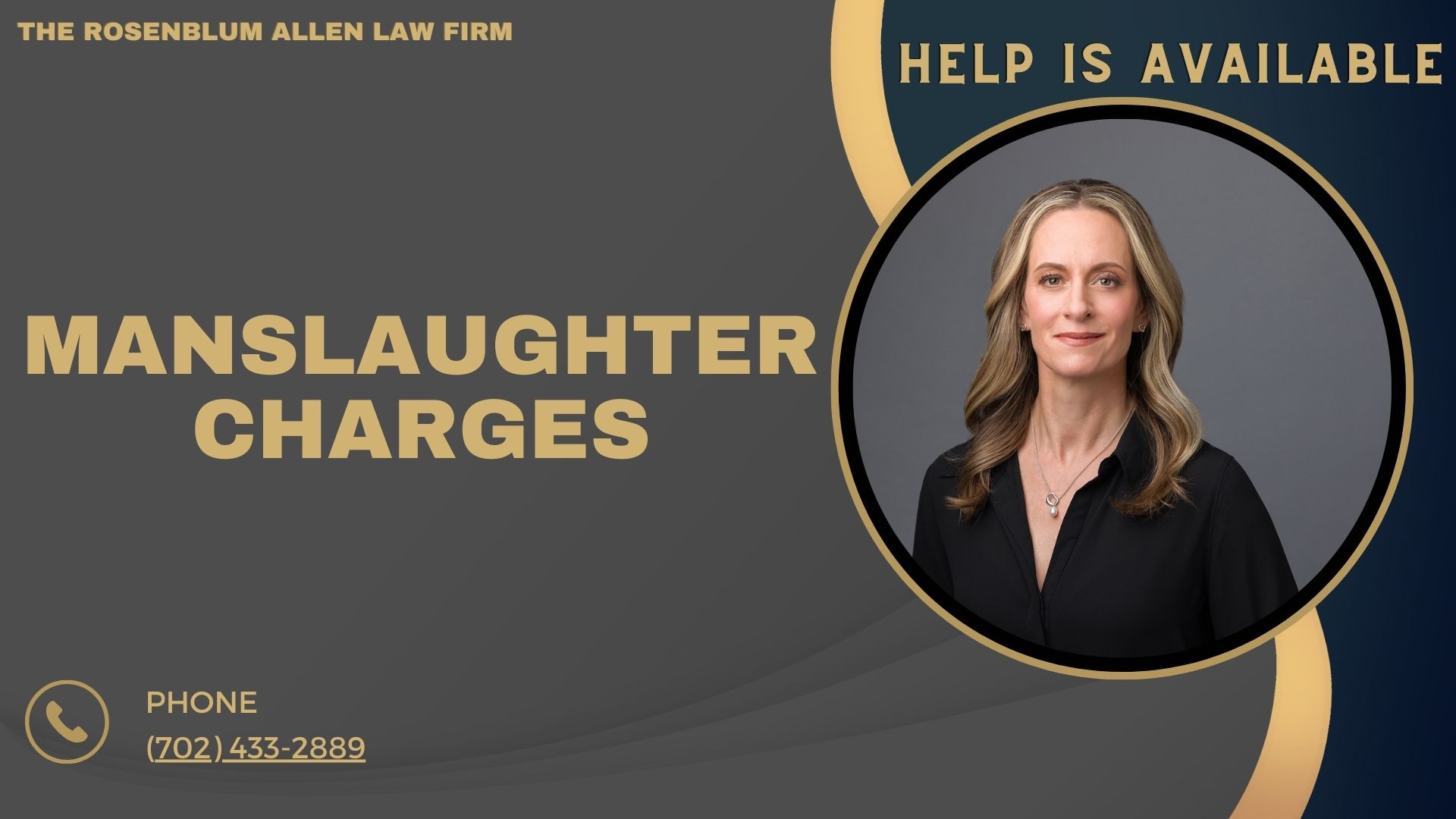Manslaughter is a legal term for unlawfully causing another person’s death without prior intent to kill. It differs from murder in that manslaughter involves a lack of malice aforethought. This means the death, while tragic, occurred without the deliberate plan to kill.

Key Differences Between Manslaughter and Murder
While both involve the loss of life, murder and manslaughter differ in intent and circumstances. Key distinctions include:
| Aspect | Manslaughter | Murder |
|---|---|---|
| Intent | No premeditation; may involve recklessness | Premeditated or intentional |
| Examples | Accidental death in a fight | Deliberately planning a killing |
| Penalties | Often less severe; varies by jurisdiction | Typically harsher; includes life sentences or death penalties |
Categories of Manslaughter
Voluntary Manslaughter
- Definition and Examples
- Voluntary manslaughter occurs when a person kills someone in the heat of passion or due to sudden provocation. The killer may have acted irrationally in the moment, without time to cool off.
Examples include:
- Killing someone during a heated argument.
- Reacting violently upon discovering infidelity.
- Everyday Situations Leading to Voluntary Manslaughter
- Voluntary manslaughter often arises in emotionally charged situations. Factors that may contribute include:
- Extreme emotional disturbance.
- Provocation by the victim, such as threats or physical violence.
Courts may consider whether a reasonable person would have acted similarly.
Involuntary Manslaughter
- Definition and Examples
- Involuntary manslaughter happens when someone causes a death due to careless or reckless actions but without intent to kill.
Examples include:
- A construction worker failed to secure equipment, leading to a fatal accident.
- A person mishandling a firearm, accidentally discharging it, and killing someone.
- When Negligence Becomes Criminal
- Negligence becomes criminal when a person’s actions are deemed grossly irresponsible. Examples include ignoring safety protocols or knowingly engaging in risky behavior.

Legal Consequences of Manslaughter
Penalties and Sentencing
Jail Time
Manslaughter charges carry severe penalties, including jail time. The sentence length often depends on the type of manslaughter and the circumstances surrounding the case.
| Type of Manslaughter | Potential Jail Time |
|---|
| Voluntary Manslaughter | 3–15 years in many jurisdictions |
| Involuntary Manslaughter | 1–10 years, sometimes probation |
| Vehicular Manslaughter | Ranges from probation to 20+ years |
Factors that influence sentencing include:
- Prior criminal history.
- Severity of negligence or recklessness.
- Whether drugs or alcohol were involved.
Fines and Restitution
In addition to jail time, courts may impose fines or order restitution to the victim’s family. Restitution payments help compensate for medical expenses, funeral costs, or lost income caused by the death. Fines vary widely but can reach tens of thousands of dollars.
Long-term Impacts
Criminal Record Implications
A manslaughter conviction stays on your record permanently. This can make it harder to:
- Get a job.
- Rent a home.
- Qualify for professional licenses.
Employers and landlords often view felony records negatively, complicating reintegration into society.
Civil Lawsuits
Beyond criminal penalties, defendants may face civil lawsuits. The victim’s family might file a wrongful death claim, seeking financial damages for their loss. These lawsuits are separate from the criminal trial and can result in significant monetary judgments.
Common Defenses to Manslaughter Charges
Challenging Intent
Proving Lack of Criminal Intent
Intent is a critical factor in manslaughter cases. Defense attorneys often argue that the death was a tragic accident, not the result of recklessness or negligence. Examples of defenses include:
- Demonstrating that the accused took reasonable precautions.
- Showing that the victim’s actions played a significant role in the incident.
Accidental Death Arguments
Sometimes, deaths occur despite the accused’s best efforts to prevent harm. For instance:
- A person performing first aid accidentally causes an injury that leads to death.
- A driver involved in an accident acted responsibly but could not avoid the collision due to unforeseen circumstances.
Self-defense and Justifiable Homicide
Legal Standards for Self-defense
Self-defense is a common argument in voluntary manslaughter cases. To succeed, the defense must prove:
- The accused reasonably believed they were in imminent danger.
- The response was proportional to the threat.
Burden of Proof
The defense doesn’t have to prove self-defense beyond a reasonable doubt. Instead, they must provide enough evidence to create reasonable doubt in the jury’s mind.

How Manslaughter Laws Vary by Jurisdiction
Federal vs. State Laws
Examples of State-specific Variations
Manslaughter laws can differ significantly depending on where the crime occurs. States define and penalize manslaughter in their own ways, leading to varying outcomes for similar cases.
| State | Key Distinctions |
|---|---|
| California | Includes “gross vehicular manslaughter while intoxicated” as a specific charge. Penalties can exceed 10 years. |
| Florida | Has enhanced penalties for manslaughter involving elderly or disabled victims. |
| New York | Distinguishes between criminally negligent homicide (less severe) and second-degree manslaughter. |
These distinctions mean the location of the offense can significantly influence charges and sentencing.
Differences in Sentencing Guidelines
Federal manslaughter laws, such as those for crimes on federal property, may impose different penalties than state laws. For instance:
- Federal Law: Involuntary manslaughter on federal land can carry up to 8 years in prison.
- State Law: A state may offer probation for comparable offenses if mitigating factors exist.
Understanding where the case is prosecuted is crucial for defendants and their legal teams.
Notable Cases
Landmark Manslaughter Cases
Some manslaughter cases have shaped legal standards or drawn public attention. Examples include:
- The People v. Aaron Hernandez (2012): The former NFL player faced voluntary manslaughter charges after a violent altercation, highlighting how fame doesn’t shield from prosecution.
- Michelle Carter Case (2014): Carter was convicted of involuntary manslaughter for encouraging her boyfriend’s suicide through texts, raising questions about technology and responsibility.
Lessons Learned from Precedent
These cases emphasize important legal principles:
- Manslaughter laws can adapt to new circumstances, such as cybercrime.
- Public perception often influences sentencing, especially in high-profile cases.

Breaking It All Down
Manslaughter is a serious legal issue with significant consequences. It differs from murder in its lack of intent, but it still carries severe penalties, including prison time, fines, and lasting impacts on one’s life. Understanding the distinctions between voluntary, involuntary, and vehicular manslaughter is critical for anyone facing such charges or seeking to understand the law.
Legal outcomes can vary widely based on the specific circumstances of the case and the jurisdiction in which it occurs. Factors like intent, negligence, and mitigating circumstances affect how cases are prosecuted and sentenced.
If you or someone you know is involved in a manslaughter case, seeking professional legal guidance is essential. Navigating the complexities of manslaughter laws is challenging, but the proper defense can significantly affect the outcome.

Frequently Asked Questions
What is the difference between gross negligence and ordinary negligence in manslaughter cases?
Gross negligence refers to extreme carelessness or reckless disregard for the safety of others. It’s more severe than ordinary negligence, which involves failing to act reasonably. Gross negligence often serves as the basis for involuntary manslaughter charges.
Can manslaughter charges be reduced to lesser offenses?
Yes, charges may be reduced in some cases through plea bargaining or presenting mitigating factors. For instance, a strong defense might persuade prosecutors to pursue a lesser charge like reckless endangerment.
How does intent affect sentencing for manslaughter?
Intent plays a crucial role in sentencing. While manslaughter doesn’t involve premeditation, voluntary manslaughter—committed in the heat of passion—often results in harsher penalties than involuntary manslaughter, which lacks the intent to kill.
Is there a statute of limitations for manslaughter charges?
The statute of limitations varies by state and type of manslaughter. In some jurisdictions, there is no statute of limitations for serious crimes like voluntary manslaughter. In others, there may be time limits for filing charges in cases of involuntary or vehicular manslaughter.
Can manslaughter charges apply in cases of assisted suicide?
In some jurisdictions, assisting in someone’s suicide can lead to manslaughter charges. This often depends on the actions taken and whether they were deemed reckless or unlawful.
Are manslaughter laws different for juveniles?
Yes, minors charged with manslaughter are often tried under juvenile laws, which focus more on rehabilitation than punishment. However, they may be tried as adults in severe cases depending on the circumstances and state law.
Can self-defense claims be used for all types of manslaughter?
Self-defense is typically a stronger argument in voluntary manslaughter cases, where the accused acted in response to a perceived threat. It is less applicable in cases of involuntary or vehicular manslaughter, as those often involve negligence rather than intentional actions.
What role does intoxication play in manslaughter cases?
Intoxication can significantly impact manslaughter charges. For instance, driving under the influence that results in a fatal accident often leads to vehicular manslaughter charges, and penalties may be enhanced if alcohol or drugs are involved.
How do courts determine if manslaughter was accidental or criminal?
Courts evaluate the accused’s actions, their awareness of risks, and whether they acted recklessly. Expert testimony, witness accounts, and forensic evidence often play critical roles in this determination.
Can a manslaughter conviction be expunged from a criminal record?
This depends on the jurisdiction and the specific circumstances of the case. Some states allow expungement of certain manslaughter convictions after serving a sentence, but severe cases, especially involving gross negligence, may remain on the record permanently.

Additional Resources for You
Molly Rosenblum, Esq., our lead attorney, has made significant contributions beyond her role in providing exceptional legal representation by developing a comprehensive set of resources aimed at assisting individuals facing criminal charges. These resources, available on the Rosenblum Law website, are meticulously designed to offer guidance, insight, and support across a wide range of criminal defense areas. Here’s a brief overview of the resources tailored to meet your needs in times of legal challenges:
Criminal Defense Attorneys: Expert defense strategies and insights for those facing criminal charges, ensuring robust representation. Explore the resource.
Las Vegas DUI Lawyer: Specialized legal assistance for DUI charges in Las Vegas, offering guidance through the complexities of DUI law. Learn more.
Domestic Violence Lawyer Las Vegas: Dedicated support for individuals accused of domestic violence, providing legal strategies and defense. Discover the details.
Drug Possession Lawyer: Expert legal advice and defense tactics for those facing drug possession charges. Begin your defense.
Sex Crimes Attorney: Sensitive and vigorous defense for individuals accused of sex crimes, protecting rights and reputations. Start your defense.
CPS Defense Attorney: Assistance for those involved in child abuse and neglect cases, focusing on CPS defense. Understand your rights.
Misdemeanor Lawyer: Legal support for misdemeanor charges, aiming to minimize consequences and protect futures. Learn about misdemeanor defense.
Juvenile Defense Lawyers: Specialized defense for minors facing criminal charges, focusing on the unique aspects of juvenile law. Explore juvenile defense.
Las Vegas Warrant Defense Attorney: Guidance for resolving outstanding warrants and avoiding arrest through strategic legal action. Resolve your warrant.
Las Vegas Probation Violation Attorney: Expert advice for those accused of probation violations, seeking to avoid severe penalties. Understand probation violation defense.
Theft Crime Defense Lawyer: Defense strategies for individuals accused of theft, focusing on reducing or dismissing charges. Start defending against theft charges.
Kidnapping Lawyers: Legal representation for kidnapping charges, offering a defense aimed at protecting your rights and freedom. Learn about kidnapping defense.
Firearms Lawyer Las Vegas: Specialized legal assistance for firearms-related charges, ensuring knowledgeable defense in gun law cases. Explore firearms defense.
Molly Rosenblum, Esq., through these dedicated resources, aims to provide those facing criminal charges with the knowledge, strategies, and support necessary to navigate the legal system. We encourage you to utilize these resources to understand your rights, the charges against you, and how to secure the best possible outcome in your case.

Offsite Resources for You
Here are seven offsite resources that you might find helpful in understanding the legal landscape and getting more information about criminal defense:
American Bar Association: This is the largest professional organization of lawyers in the United States. Their website provides resources on a wide variety of legal topics.
Nevada State Bar: The State Bar of Nevada is a public corporation that operates under the supervision of the Nevada Supreme Court. It regulates attorneys in Nevada and provides information and resources.
U.S. Department of Justice: The DOJ website provides information on federal laws, regulations, and legal procedures.
FindLaw: This website provides free legal information, and you can use it to find a lawyer in your area.
Legal Aid Center of Southern Nevada: This non-profit organization provides free legal education and assistance to those who cannot afford a lawyer in Southern Nevada.
National Legal Aid & Defender Association: This association is committed to quality legal representation for people who cannot afford legal counsel.
American Civil Liberties Union: The ACLU works in the courts, legislatures, and communities to defend and preserve the individual rights and liberties guaranteed by the Constitution and laws of the United States.
Remember to consult with a legal professional about your specific situation.
Why You Haven't Already Hired a Defense Attorney to Help You
Watch this short video to take the next big step toward defending your rights against your felony charge.

A Special Message from Our Lead Attorney

Thank you for taking the time to read through these resources. I hope you found the information helpful and informative. If you’re ready to take the next step or need assistance with your situation, don’t hesitate to call me and my team at (702) 433-2889. We’re here to help you move forward and navigate the challenges ahead.




